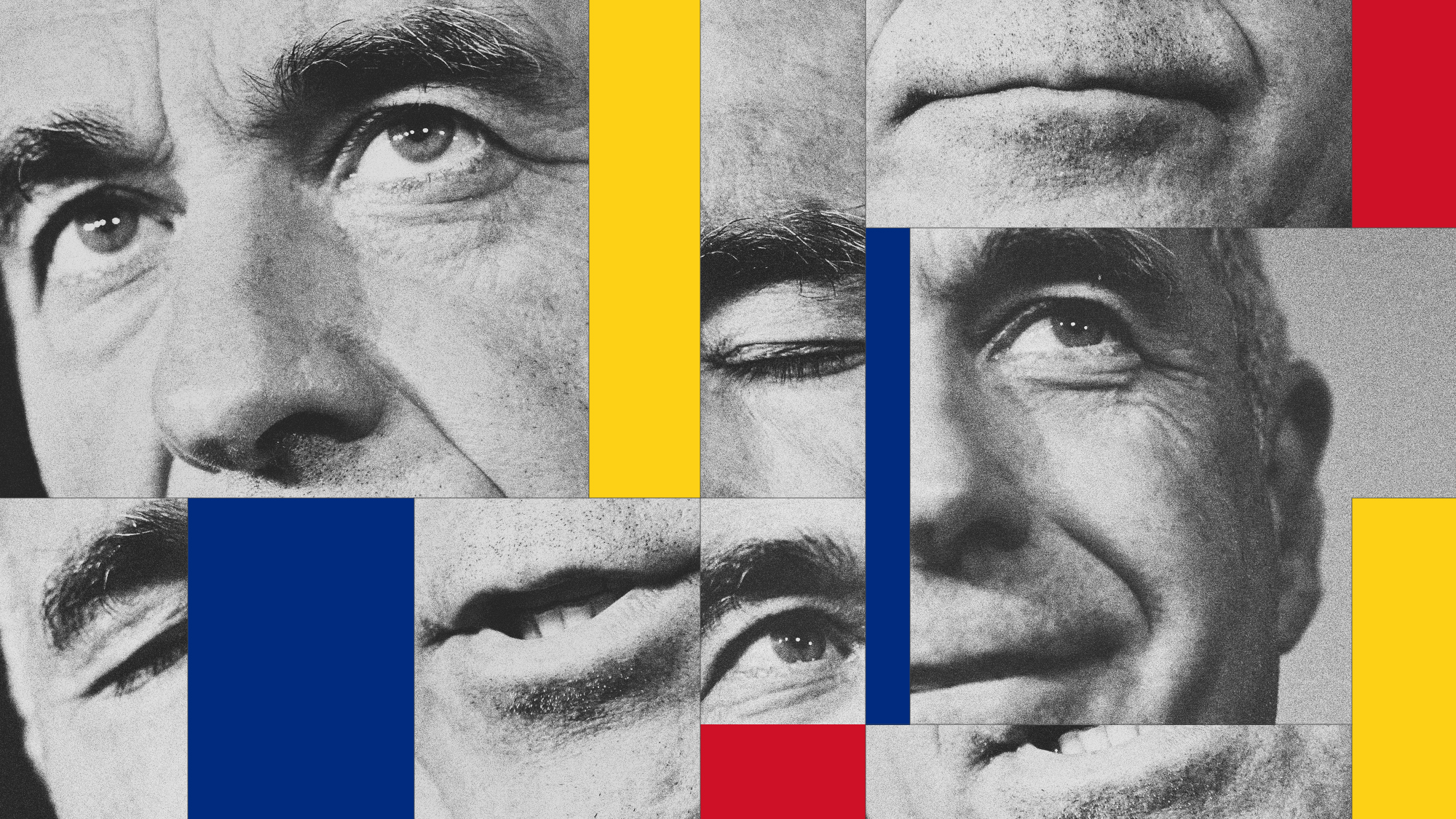Calin Georgescu: the 'Putin of Romania'
Far-right outsider sends shockwaves through Europe after surprise first-round win in Sunday's presidential election

A free daily email with the biggest news stories of the day – and the best features from TheWeek.com
You are now subscribed
Your newsletter sign-up was successful
Calin Georgescu is the EU and Nato's worst nightmare.
The 62-year-old agricultural engineer came from nowhere to win the first round of Romania's presidential election on Sunday, the far-right candidate leap-frogging more well-known figures from the left and right to win 22% of the vote. He will now face a run-off against the pro-Western, pro-Nato centrist Elena Lasconi on 8 December.
His win has already dealt a "major blow to the country's political establishment", said the Financial Times (FT), and sent shockwaves through Europe. If he prevails next month he will hold the most powerful office in Romania, with the right to nominate the prime minister, conduct coalition talks and have the last word on security and foreign policy matters in the strategically vital east European country.
The Week
Escape your echo chamber. Get the facts behind the news, plus analysis from multiple perspectives.

Sign up for The Week's Free Newsletters
From our morning news briefing to a weekly Good News Newsletter, get the best of The Week delivered directly to your inbox.
From our morning news briefing to a weekly Good News Newsletter, get the best of The Week delivered directly to your inbox.
'Putin of Romania'
In a TV interview in 2018, Georgescu called Russian President Vladimir Putin one of the few politicians in the world who is "a true leader". Three years later he described Nato's ballistic missile defence shield in Deveselu, southern Romania, as a "shame of diplomacy," claiming the military alliance would not defend any of its members against a Russian attack.
This has earned him a reputation as a pro-Russian politician, with local newspapers jokingly describing him as the "Putin of Romania". Georgescu was a member of the far-right nationalist Alliance for the Unity of Romanians (AUR), but left the party in 2022 amid criticism that his anti-Nato stance was harming its reputation.
While still a member of the AUR, Georgescu attracted "widespread condemnation for endorsing past Romanian far-right leaders", said the FT. He has called the pro-Nazi de facto Second World War dictator Ion Antonescu a "martyr" and described the pre-war leaders of the Christian-fascist Iron Guard movement as "heroes".
Like other far-right populist politicians such as the UK's Nigel Farage and France's Jordan Bardella, Georgescu is also "savvy with social media", said Radio Free Europe.
A free daily email with the biggest news stories of the day – and the best features from TheWeek.com
His TikTok account has gained 3.8 million likes with videos of himself attending church, doing judo, running on a track, and speaking on podcasts. Just days before the presidential election vote, Georgescu launched a TikTok campaign calling for an end to aid for Ukraine, "apparently striking a chord with voters".
A '2024 radical right-wing populist'
In the run-up to the election, Georgescu – who does not now belong to any political party – barely registered in national opinion polls and did not take part in TV debates.
But perhaps his win should not have come as such a surprise given he "in many ways fits the mould of the 2024 radical right-wing populist" that has triumphed again and again, said Politico. "He speaks plainly, shuns Western orthodoxy, is loathed by mainstream media, and is an EU- and Nato-sceptic."
"Today, a vote is a prayer for the nation," Georgescu wrote on Facebook on Sunday, summing up his appeal and those disillusioned voters he hoped to target. "I voted for the wronged, for the humiliated, for those who feel that they do not matter in this world… they are the ones that matter!"
Across a range of issues, "whatever the Romanian establishment stands for, he appears to be against it", said The Times. "He has argued that chemotherapy makes cancer patients sicker, that viruses are laboratory-engineered bio-weapons and that vaccines were designed to make children ill."
Georgescu is promising a "radical transformation" of Romania, said the BBC, creating a society "based on small-scale organic agriculture, Christian values, and national sovereignty".
Central to his appeal is his promise to "restore Romania’s dignity" and end subservience to the international organisations it belongs to, including Nato and the EU. Like Robert F. Kennedy Jr's recent presidential campaign in the US, "food policy has loomed large" in Georgescu's politics, said Politico, and he has called for the country to be more self-sufficient in both farm and energy output.
His surprise surge at the polls has raised "concerns about possible yet unproven interference" from foreign state actors such as Russia, said Politico. "He is the product of the vacuum [in Romanian politics] and likely Russian money," said Milan Nič, from the German Council on Foreign Relations.
Regardless of how he fares in next month's run-off, Georgescu's popularity is a "wakeup call" for the West, EU and Nato, he concluded – "one of many".
Elliott Goat is a freelance writer at The Week Digital. A winner of The Independent's Wyn Harness Award, he has been a journalist for over a decade with a focus on human rights, disinformation and elections. He is co-founder and director of Brussels-based investigative NGO Unhack Democracy, which works to support electoral integrity across Europe. A Winston Churchill Memorial Trust Fellow focusing on unions and the Future of Work, Elliott is a founding member of the RSA's Good Work Guild and a contributor to the International State Crime Initiative, an interdisciplinary forum for research, reportage and training on state violence and corruption.